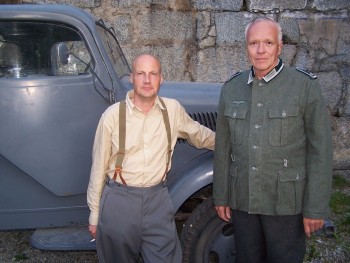
"True love does not ask about the boundaries of the obligation to love, but pardons others as often as it has the opportunity. This way will always remain rugged and rocky." They may build many beautiful streets today, but they cannot change the way to heaven. How much less it will be spared us! We must go courageously on the way of suffering whether we begin sooner or later.

God did not spare his beloved Son from this experience of abandonment.

It is indeed true that a person's character shows itself in suffering. God wants only to test whether we constantly confess our belief even in suffering. "Dear Fani, do not get discouraged even if it often seems that the Lord God has also forgotten us. We have shared many joys, and so we want also to do the same with suffering." Spiritual hardships are frequently harder than physical ones, and if one can speak or write a little about everything, then things can become easier for one's heart. I ask you, dear Fani, if it is possible, write me often. And more especially when it is one's dearest wife. "It is hard to see someone suffer, especially when one cannot help. His moving expression of faith and his unswerving obedience to conscience carry an urgent message for today: "Although people have accused me of criminal behavior and condemned me to death, be consoled knowing that in God's eyes not everything is criminal which the world perceives to be criminal."

An introduction by Jim Forest and notes by the translator, Robert Krieg, set these writings in the context of Franz's life and times.
#FRANZ JAGGERSTATER SERIES#
These writings, including correspondence between Franz and his wife Franziska and a series of reflections written in prison, represent the first English translation of Jägerstätter's writings. He stands as one of the great witnesses and martyrs of our time. Now, with his beatification in 2007, his witness has been embraced by the universal church. For many years Jägerstätter's solitary witness was honored by the Catholic peace movement, while viewed with discomfort by many of his fellow Austrians. Before taking this stand Jägerstätter consulted both his pastor and his local bishop, who instructed him to do his duty to the fatherland and to obey the law, an instruction that violated his conscience. Franz Jägerstätter, an Austrian farmer, a devoted husband and father, and a devout Catholic, was executed in 1943 as a result of his refusal to serve in the Nazi army.


 0 kommentar(er)
0 kommentar(er)
